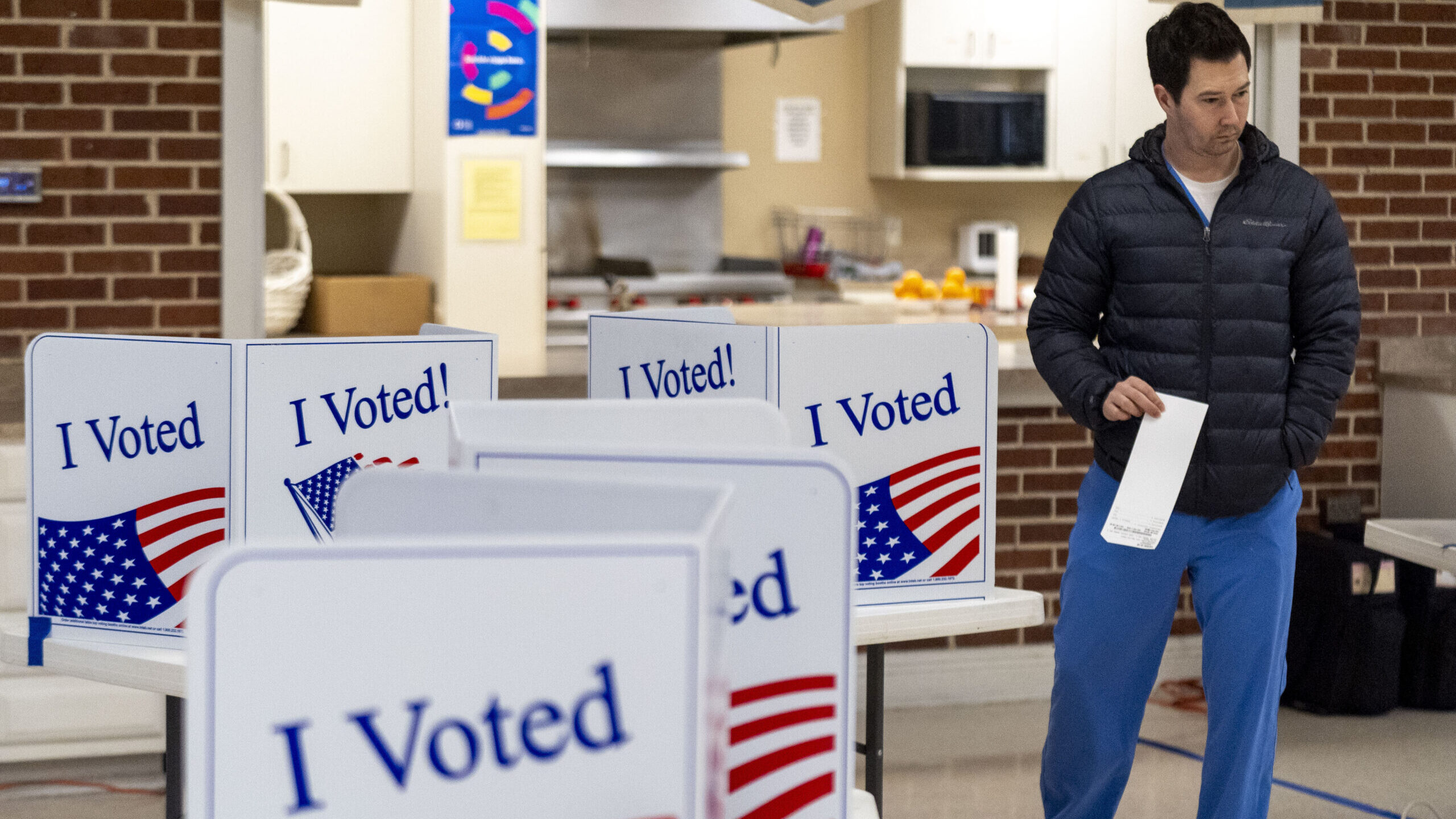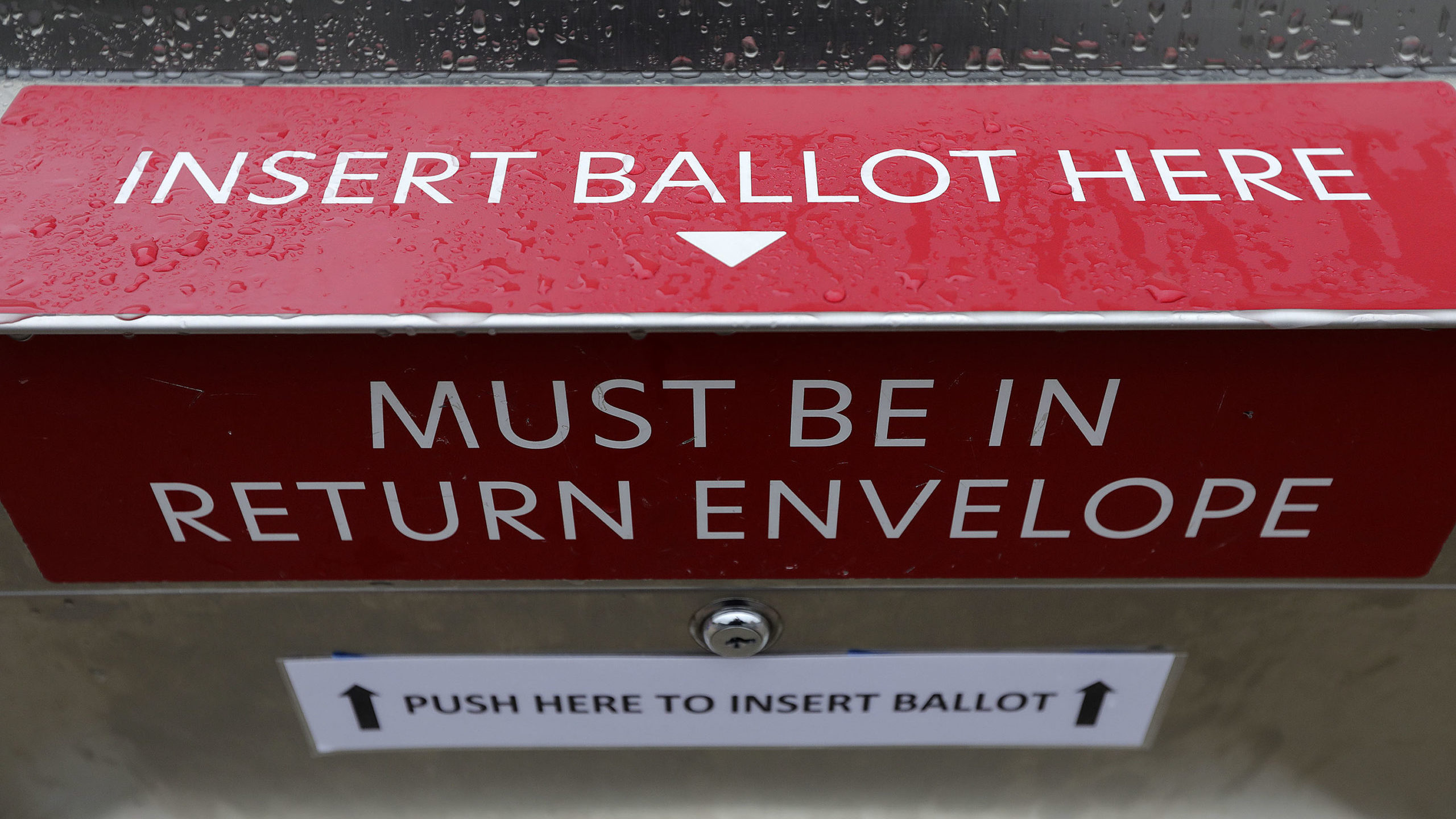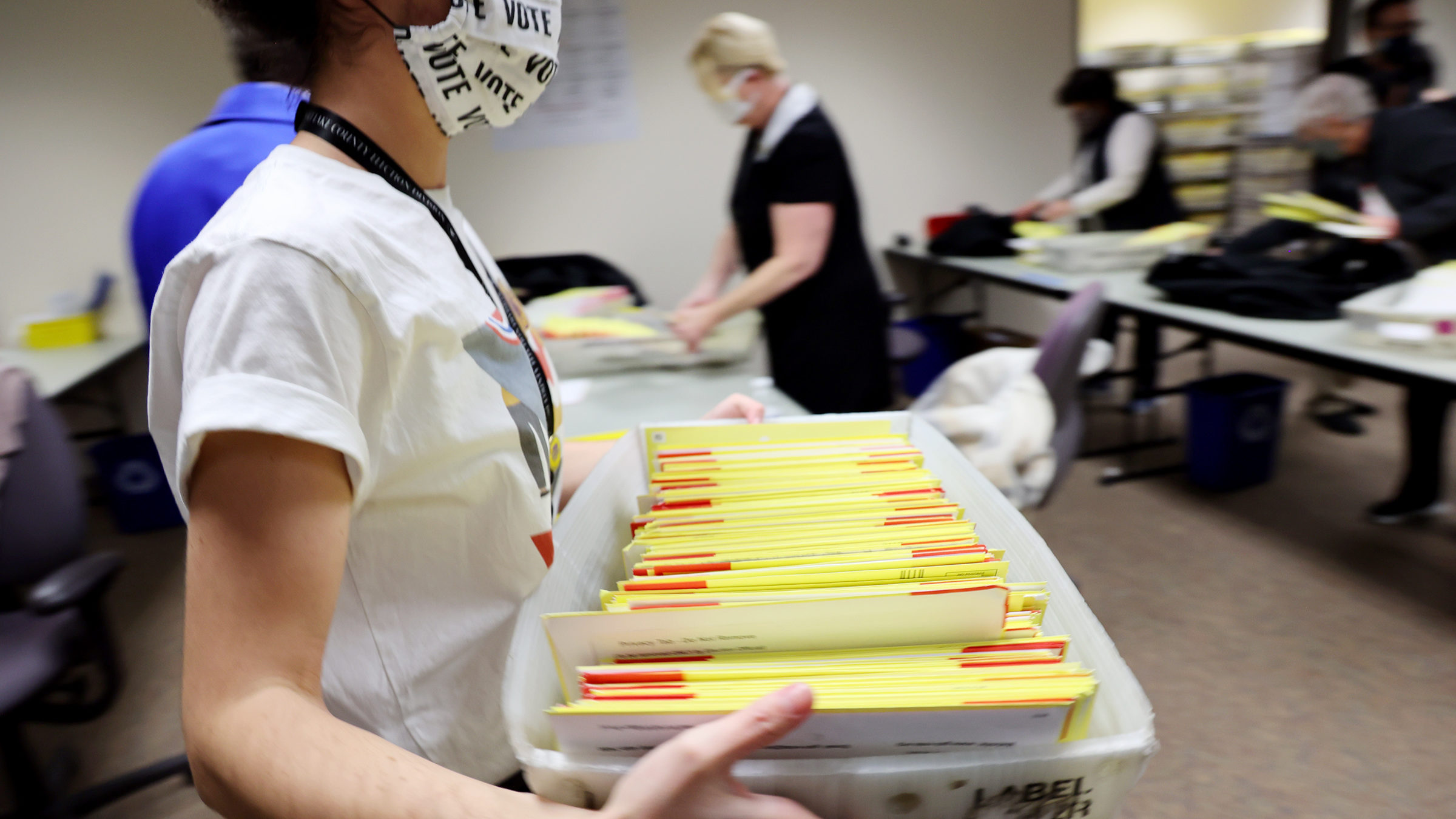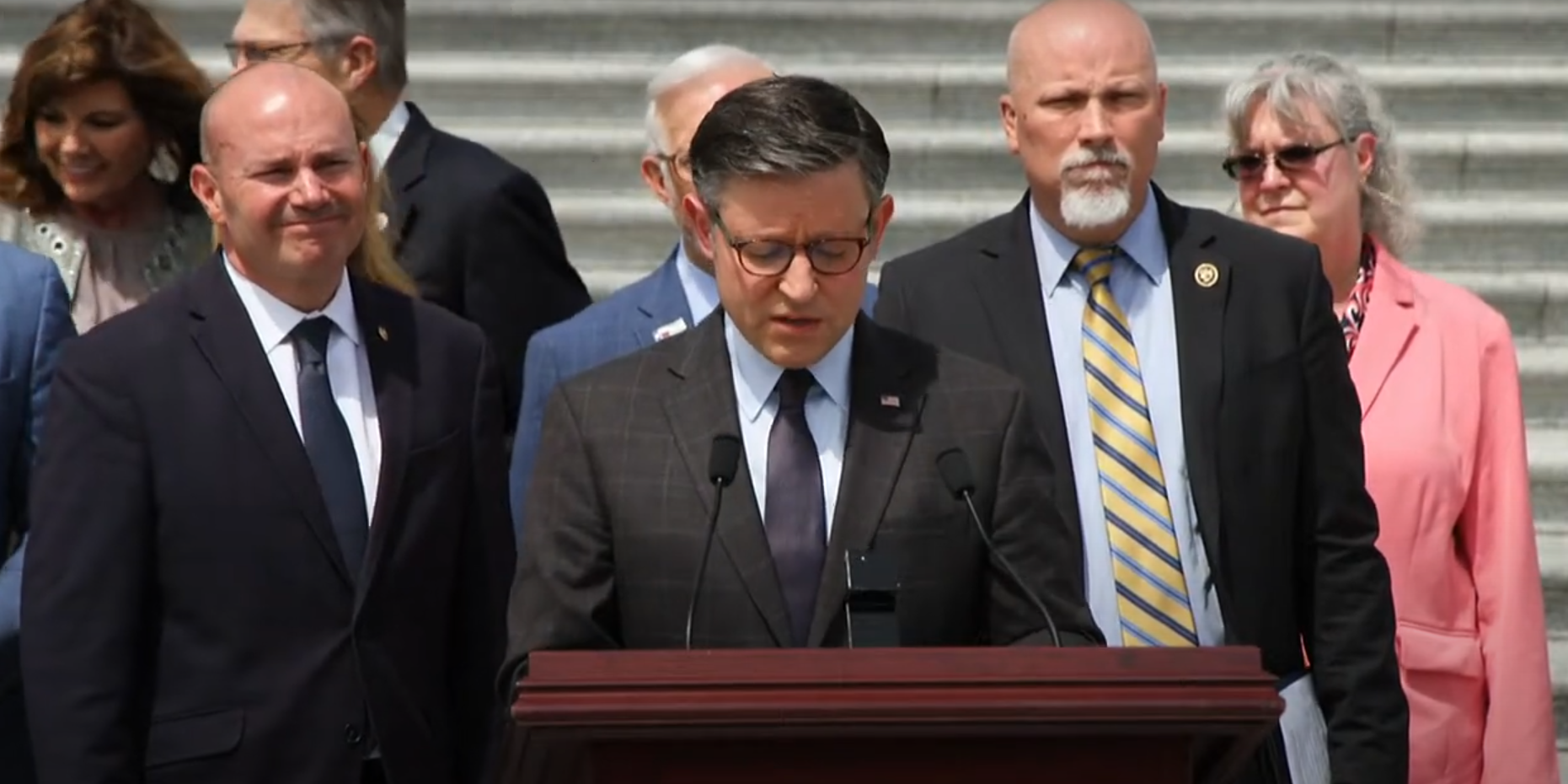Why election trust is down, and how to restore it
May 10, 2024, 10:00 AM
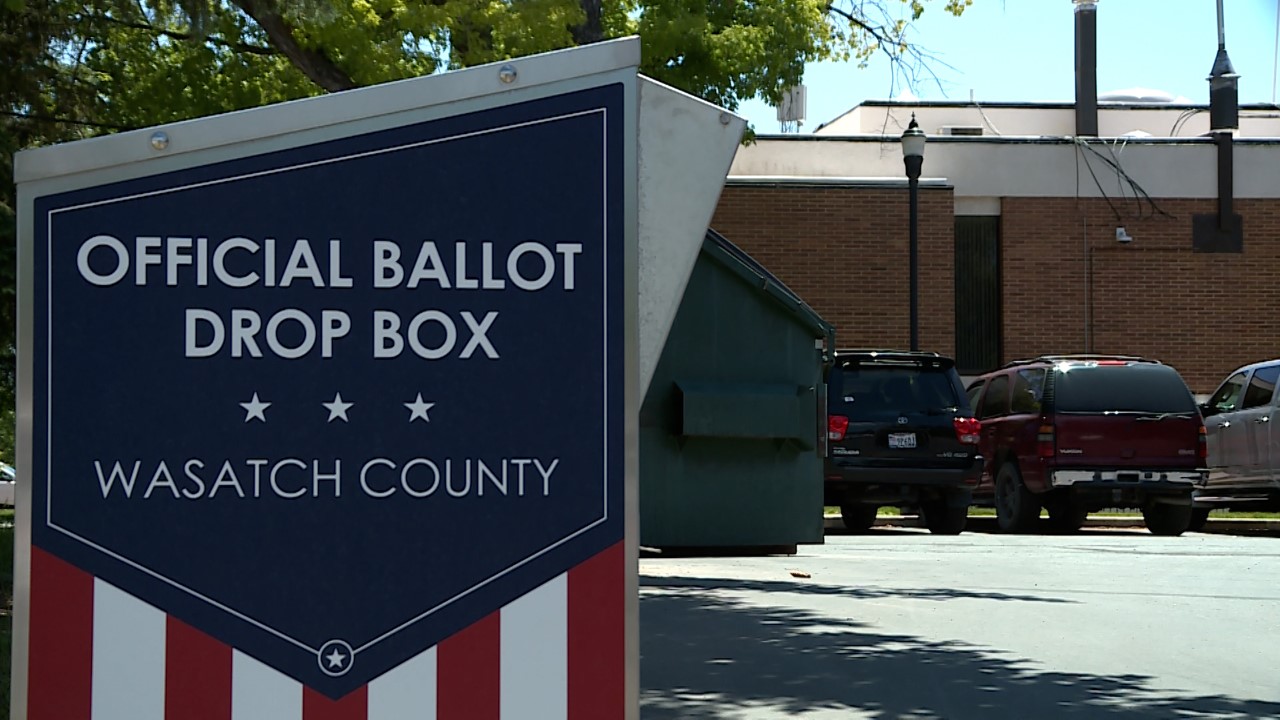
A ballot drop box. Having a winning, or losing, candidate is one reason for declining election trust said the Sutherland Institute.(Meghan Thackrey/KSL TV)
(Meghan Thackrey/KSL TV)
SALT LAKE CITY — Trust in elections has dropped in recent years in Utah and around the country. One Utah group says it knows why and what to do to reverse the trend.
Declining trust in Utah
Polls show Utahns generally have high trust in the integrity of the state’s elections. However, when historical examples are presented, voters tend to show more hesitation.
In a 2022 Deseret News/Hinckley Institute poll, 81% of respondents said they were confident their “state or local government officials will conduct a fair and accurate election in 2022.”
However, 40% of respondents still supported a legislative audit of the 2020 election, compared to 49% who opposed it.
The legislature approved an audit of that year’s elections. In the audit, it found “no evidence of large-scale election fraud or major security worries in the current system.” Lawmakers still called for small improvements in the system, like increasing the number of voter signatures in a state database to verify ballots. Lawmakers also encouraged county clerks to contact voters through more than one method. These methods could be an email or a phone call. Lawmakers want clerks to remind voters they can “cure” or fix issues on their ballots after they have been cast.
One reason why trust in elections has dropped
One major factor driving Americans’ distrust of the election system is the loss of their chosen candidate in a race.
“A lot of it is driven by as much human psychology as anything,” Sutherland Institute Chief Growth Officer Derek Monson told KSL Newsradio on Wednesday. “You know, there’s some good evidence out there showing that when your candidate loses, your trust in elections drops. That’s what’s happened on the Republican side of things in 2020, and vice-versa. There was kind of a change on the Democrat side, when Biden won, that trust jumped.”
A Pew Research Center survey found that before the 2016 election, 48% of voters who supported former President Donald Trump believed the election would be fairly counted. After Mr. Trump’s victory, that number went up to 88%, or almost double.
The same survey showed that Hillary Clinton voters moved only slightly. Clinton supporters moved from 79% believing in the election’s integrity before voting day to 76% after.
Democratic voters changed their minds more often in 2020. Before the election, 52% of President Joe Biden’s supporters were “very” confident in a free and fair election. After Mr. Biden won, that changed to 78% of supporters. On the other side, supporters of Mr. Trump went from 48% being very confident before the 2020 election to 11% after.
See it for yourself
Monson said the best way to overcome mistrust driven by claims of voter fraud is to visit your county elections office and see how it works for yourself.
“They want people to understand, in fact, how the system works and why it’s safe and secure.”
Monson said when someone has only heard a narrative like those passed around after the 2020 election, it’s easier to develop mistrust in the system.
How to restore Americans’ trust
Monson said one way to move the needle is to improve the voting experience.
“What has our experience been like,” Monson said. “If we go and vote in an elections center, you have to wait in a very long line. Is it easy to go in and process your ballot? If you vote by mail, are there issues with getting your ballots in the drop box or getting it in the mail, or getting it delivered in time?”
Monson said these administrative fixes can make a big difference in voters’ trust that their ballot will be counted accurately.
In 2020, according to Monson, criticism of the process and election officials “was a new thing” for people.
“But, in 2024, we know how this story goes,” he said.
To change public perception, Monson said the Sutherland Institute is working to share research into the Utah and national elections process.
“[Sutherland’s research is trying] to help people understand that the confidence they’ve had in elections here in Utah, and broadly across the nation in the past, is well-grounded,” Monson said.
One nugget Monson wants to be shared: If a large-scale fraudster were to try to swindle Utah’s elections, they would have to get through 20 layers of security to have an impact.



